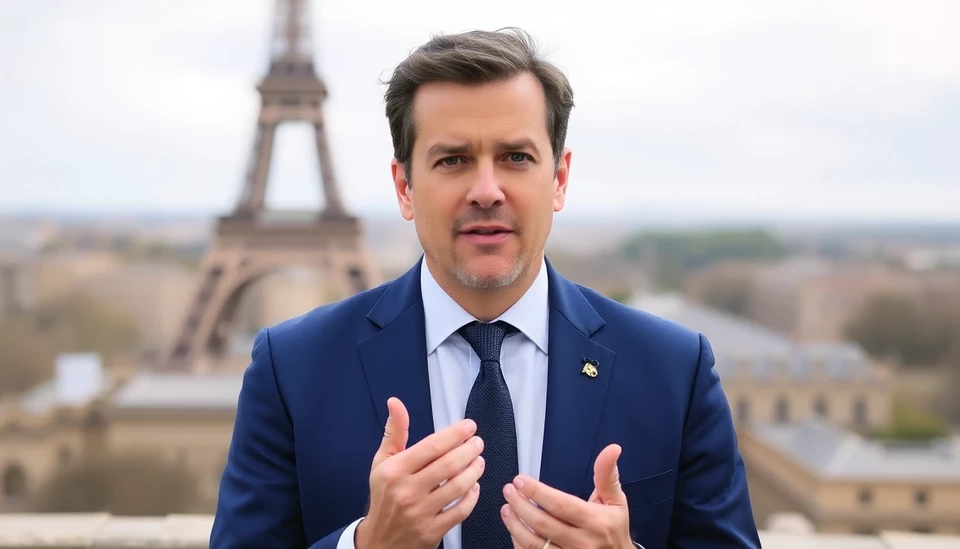
UK's Budget Deficit Exceeds Forecast Amid Forthcoming Tariffs
In a surprising twist to the UK's fiscal landscape, new data reveals that the nation's budget deficit has surpassed projections, signaling potential challenges ahead for the government. According to the latest financial reports, this significant overshooting comes even before the anticipated impact of upcoming tariffs from a recent trade agreement. The conclusion suggests a looming economic strain that policymakers will need to address proactively.
Continue reading
China Boosts Budget Spending Amid Rising Tariff Challenges
In a proactive response to escalating tariff pressures, the Chinese government has unveiled a significant acceleration in its budget spending plans. This strategic move aims to cushion its economy against the adverse effects of ongoing trade tensions, particularly with key trading partners.
Continue reading
Austria's New Finance Chief Projects Greater Fiscal Deficit Than Anticipated
In an unexpected turn of events, Austria's newly appointed Finance Minister has disclosed that the country's budget deficit is likely to exceed initial predictions. This revelation comes amid ongoing economic challenges and signals a need for urgent revisions to fiscal policies.
Continue reading
Economic Pressures Prompt Couples to Reassess Wedding Budgets Amid Stock Market Decline
As stock markets experience a notable downturn, many couples are finding themselves compelled to tighten their wallets when planning their weddings. The volatility in financial markets has cast a shadow over the economy, pushing engaged couples to rethink extravagant celebrations in favor of more budget-friendly options.
Continue reading
IndiGo Expands Horizons: Direct Flights to Europe and Africa on the Horizon
In a significant strategic move, IndiGo Airlines is ramping up its plans to introduce direct flights connecting India to various destinations in Europe and Africa. The airline, which has established itself as a dominant player in the domestic aviation market, is now setting its sights on international expansion, reflecting a buoyant recovery in travel demand post-pandemic.
Continue reading
Iraq Adjusts Oil Pricing Strategy in Response to Market Decline
Iraq has recently announced significant changes to oil pricing in its federal budget, citing a substantial downturn in oil market values. As a nation that heavily relies on oil exports for its economic stability, this decision marks a critical response to the ongoing volatility in global oil prices.
Continue reading
Mauritius Faces Significant Budgetary Challenges as Fiscal Gap and Debt Widen
In a concerning turn of events, Mauritius has revealed a stark revision to its fiscal gap and debt figures, painting a bleak picture of the nation’s economic health. The government's new data indicates that the budget deficit has increased, prompting fresh scrutiny from economists and financial analysts regarding the country's fiscal sustainability.
Continue reading
Sweden's Bold Spring Budget Aimed at Reviving Economic Growth
In a strategic move to bolster its sluggish economy, the Swedish government has unveiled its spring budget, designed to stimulate growth amidst ongoing financial challenges. The budget, which was presented by Finance Minister Elisabeth Svantesson, showcases a comprehensive plan to counteract the effects of inflation, rising energy prices, and labor market issues that have recently plagued the nation.
Continue reading
France's Ambitious Savings Goal: A $40 Billion Challenge Ahead of 2026 Deficit Target
In a bold move to address its fiscal responsibilities, France has set a daunting target to achieve a staggering €40 billion in savings by 2026. This ambitious financial strategy comes as the nation aims to rein in its public deficit, a crucial step amid ongoing economic pressures and the necessity to stabilize its financial landscape.
Continue reading
Major Cuts Loom for NASA Science Programs in White House Budget Proposal
In a move that has stirred significant concern within the scientific community, the White House has unveiled a budget proposal that threatens to drastically reduce funding for NASA's science programs. This initiative, part of a broader governmental effort to realign fiscal priorities, could have profound implications for ongoing and future space exploration missions.
Continue reading